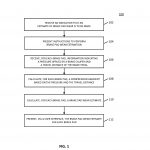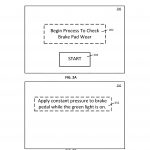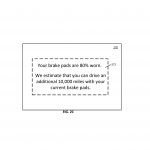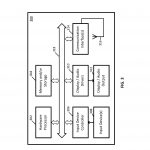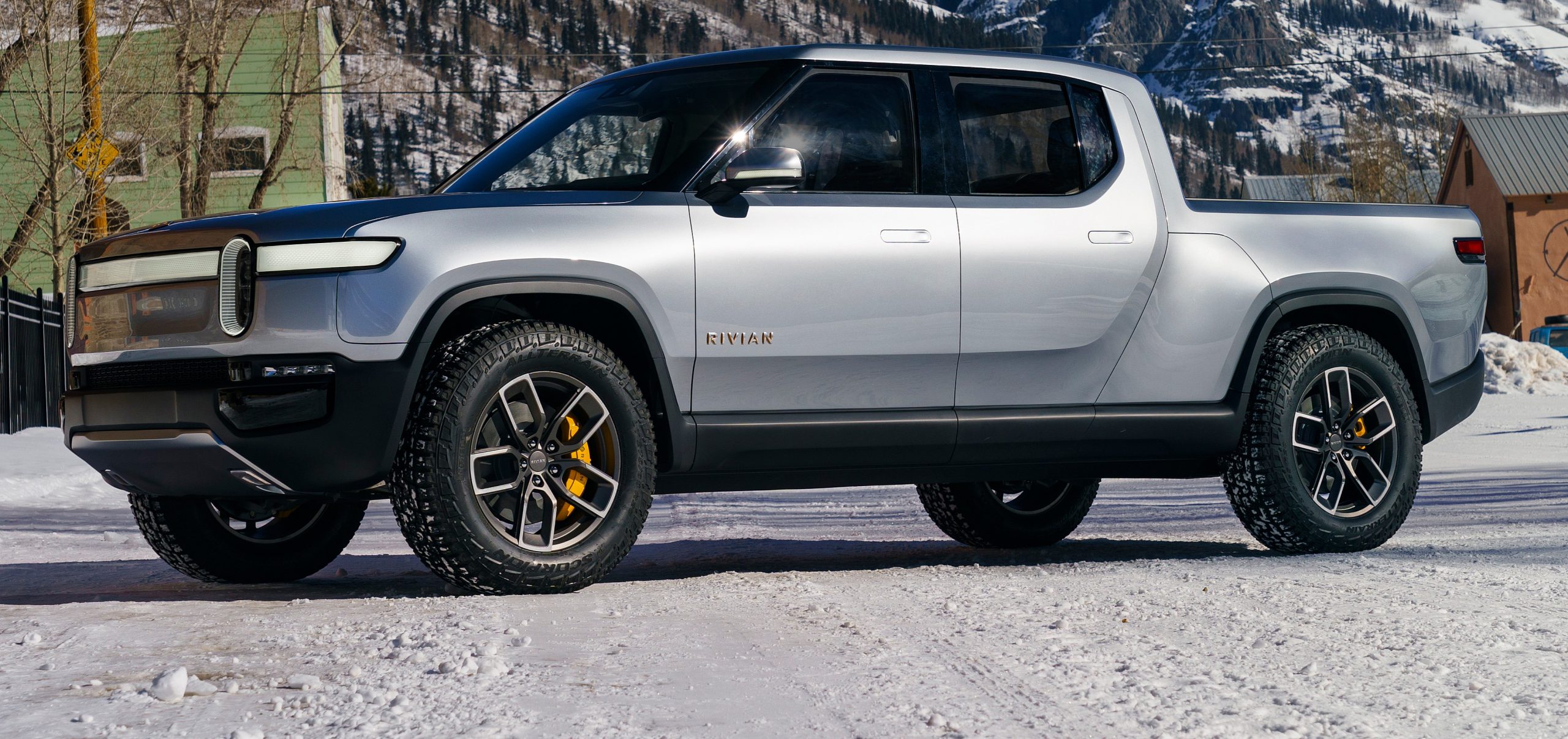
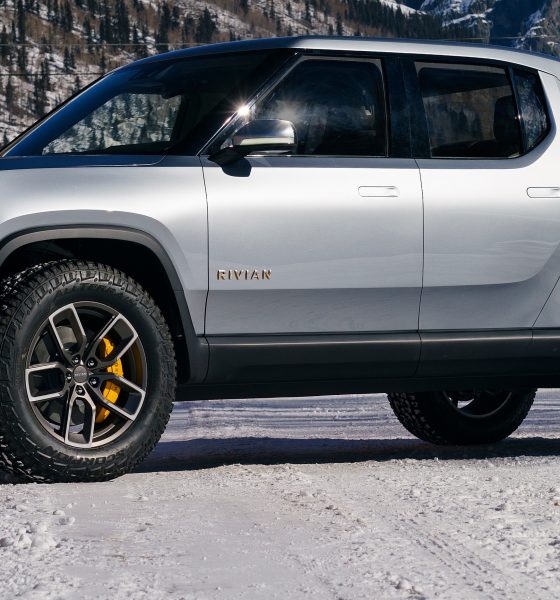
News
Rivian patent hints at real-time brake wear monitoring system using driver profiles
Rivian’s attention to detail on its all-electric vehicles is laudable, and a recent patent application by the outdoor adventure company for monitoring brake wear continues that theme. In an application titled “Methods, Systems, and Media for Non-Contact Brake Pad Wear Determination”, a method of estimating the wear on individual breaks via computer algorithms is described. Once calculated, the information is then made available to drivers for planning purposes via the infotainment screen on the R1T pickup truck and R1S SUV. The application published on August 1, 2019 under US Patent Publication No. 2019/0234475.
The background of Rivian’s application stated the following reasons why the invention is needed:
“Current approaches for determining brake pad wear…tend to merely indicate when brake pads are fully worn, for example, using a brake pad indicator that causes the brakes to squeal when the indicator contacts the brake disc or that causes an indication on a dashboard of the vehicle to be presented. It may be useful for a driver to know a current wear condition of the brake pads before the brake pads are fully worn, for example, to plan for vehicle maintenance. However, it can be difficult to determine a current wear of the brake pads.”
While not an official reason listed on the patent, one could also assume brake squealing as an annoying sound in itself would also merit the invention’s usefulness as a reliable preventative.
- Rivian brake-monitoring patent application. | Image: Rivian/USPTO
- Rivian brake-monitoring patent application. | Image: Rivian/USPTO
- Rivian brake-monitoring patent application. | Image: Rivian/USPTO
- Rivian brake-monitoring patent application. | Image: Rivian/USPTO
Overall, Rivian’s application calculates the amount of wear on its vehicles’ brakes by comparing data points gathered from two braking events. The amount of pressure applied plus the distance traveled at two different intervals is collected, then compared to a brake database, and an estimate of the mileage left before a change is needed is provided to the driver. The calculation can also include the driver’s braking history to more accurately reflect the mileage. In other words, if you’re a bit rough on the brake pedal, Rivian’s software will take that into account and probably shorten the mileage you have left before needing replacement parts compared to someone that drives…differently. Here’s the formal language for this ability:
“In some embodiments, the method further comprises associating a braking profile with an operator of the vehicle, wherein the indication of the wear amount of the brake pad includes a number of miles until the brake pad requires replacement that is estimated based on the associated braking profile.”
The method described in the claims of the application that calculate the wear on the brakes indicates a process initiated by the driver, i.e., the driver initiates a brake wear test on the center touchscreen and uses the brakes at two intervals as instructed by the vehicle’s computer to determine the wear percentage. However, the description of the application indicates that the brake testing can also happen in real-time during normal operation. The formal language for this reads as follows:
“…In some embodiments, [the testing] process…can receive a group of brake caliper measurements and corresponding brake pedal travel distances…during application of the brake pedal during normal operation of the vehicle…Additionally, in some such embodiments, [the testing] process can present indications of brake pad wear at any suitable time, such as a next time the vehicle is turned on, and/or at any other suitable time.”
This application is yet the latest nod towards Rivian’s development of a comfortable and luxury driving experience for its vehicle owners. The car maker’s branding as an outdoor electric adventure company really seems to have embraced its mission to get people outside exploring more by making the experience as convenient as possible. Whether it’s ample storage capacity, swapping out cargo modules, extending battery range with a digital jerry can, a portable kitchen built specifically for the R1T pickup truck, or now, being able to easily plan ahead for basic vehicle maintenance by checking a screen, Rivian is continuing its march against barriers to enjoying nature anywhere.
There’s a new phrase that seems to be developing based off of an old one about willpower: “Where there’s a Rivian, there’s a way.”

News
Tesla Cybercab spotted with interesting charging solution, stimulating discussion
The port is located in the rear of the vehicle and features a manual door and latch for plug-in, and the video shows an employee connecting to a Tesla Supercharger.
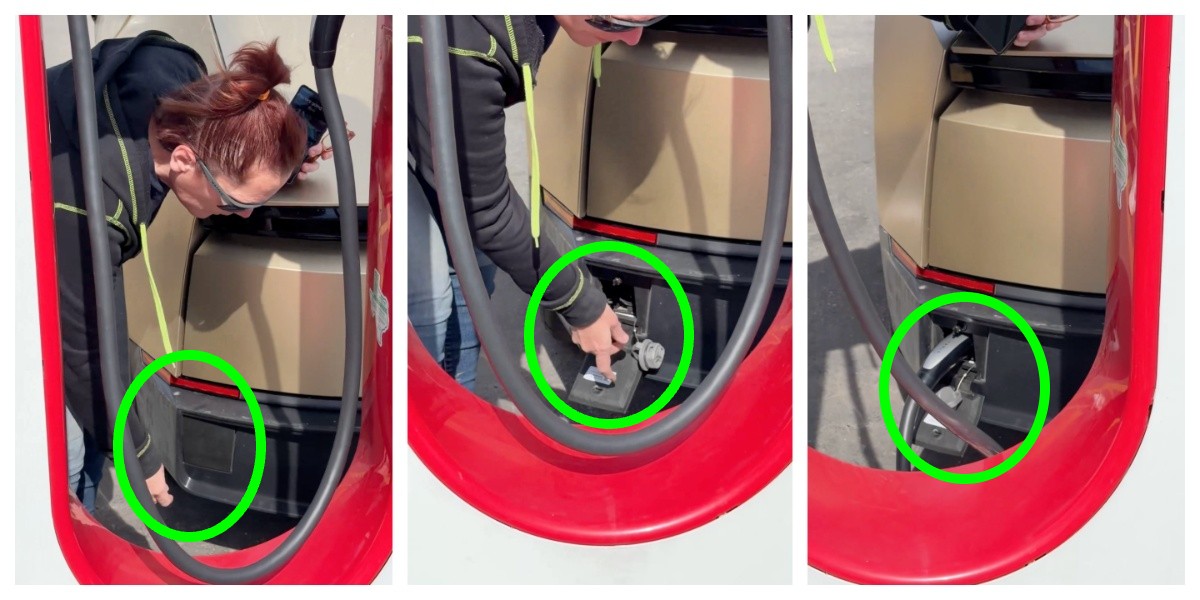
Tesla Cybercab units are being tested publicly on roads throughout various areas of the United States, and a recent sighting of the vehicle’s charging port has certainly stimulated some discussions throughout the community.
The Cybercab is geared toward being a fully-autonomous vehicle, void of a steering wheel or pedals, only operating with the use of the Full Self-Driving suite. Everything from the driving itself to the charging to the cleaning is intended to be operated autonomously.
But a recent sighting of the vehicle has incited some speculation as to whether the vehicle might have some manual features, which would make sense, but let’s take a look:
🚨 Tesla Cybercab charging port is in the rear of the vehicle!
Here’s a great look at plugging it in!!
— TESLARATI (@Teslarati) January 29, 2026
The port is located in the rear of the vehicle and features a manual door and latch for plug-in, and the video shows an employee connecting to a Tesla Supercharger.
Now, it is important to remember these are prototype vehicles, and not the final product. Additionally, Tesla has said it plans to introduce wireless induction charging in the future, but it is not currently available, so these units need to have some ability to charge.
However, there are some arguments for a charging system like this, especially as the operation of the Cybercab begins after production starts, which is scheduled for April.
Wireless for Operation, Wired for Downtime
It seems ideal to use induction charging when the Cybercab is in operation. As it is for most Tesla owners taking roadtrips, Supercharging stops are only a few minutes long for the most part.
The Cybercab would benefit from more frequent Supercharging stops in between rides while it is operating a ride-sharing program.
Tesla wireless charging patent revealed ahead of Robotaxi unveiling event
However, when the vehicle rolls back to its hub for cleaning and maintenance, standard charging, where it is plugged into a charger of some kind, seems more ideal.
In the 45-minutes that the car is being cleaned and is having maintenance, it could be fully charged and ready for another full shift of rides, grabbing a few miles of range with induction charging when it’s out and about.
Induction Charging Challenges
Induction charging is still something that presents many challenges for companies that use it for anything, including things as trivial as charging cell phones.
While it is convenient, a lot of the charge is lost during heat transfer, which is something that is common with wireless charging solutions. Even in Teslas, the wireless charging mat present in its vehicles has been a common complaint among owners, so much so that the company recently included a feature to turn them off.
Production Timing and Potential Challenges
With Tesla planning to begin Cybercab production in April, the real challenge with the induction charging is whether the company can develop an effective wireless apparatus in that short time frame.
It has been in development for several years, but solving the issue with heat and energy loss is something that is not an easy task.
In the short-term, Tesla could utilize this port for normal Supercharging operation on the Cybercab. Eventually, it could be phased out as induction charging proves to be a more effective and convenient option.
News
Tesla confirms that it finally solved its 4680 battery’s dry cathode process
The suggests the company has finally resolved one of the most challenging aspects of its next-generation battery cells.
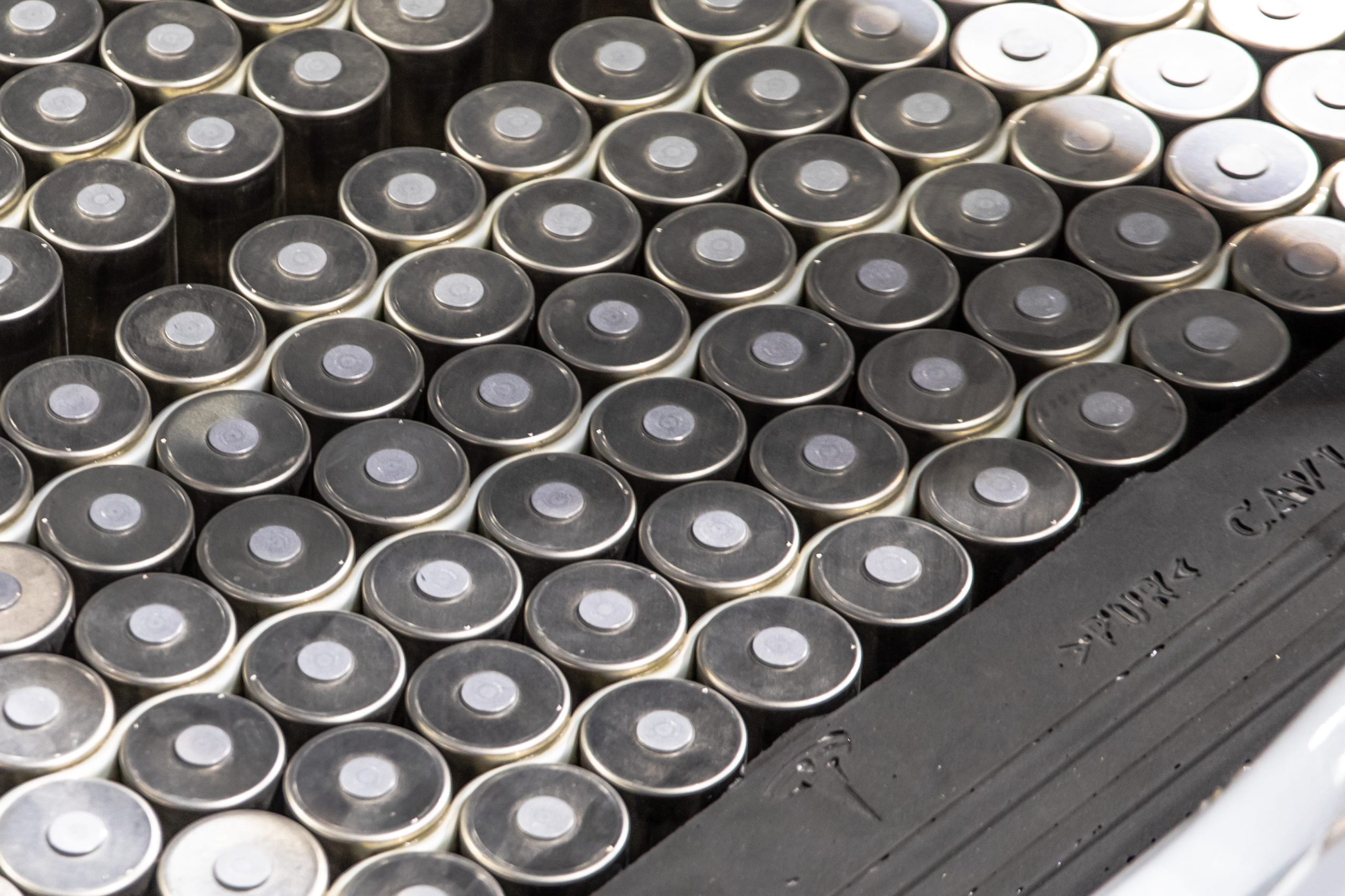
Tesla has confirmed that it is now producing both the anode and cathode of its 4680 battery cells using a dry-electrode process, marking a key breakthrough in a technology the company has been working to industrialize for years.
The update, disclosed in Tesla’s Q4 and FY 2025 update letter, suggests the company has finally resolved one of the most challenging aspects of its next-generation battery cells.
Dry cathode 4680 cells
In its Q4 and FY 2025 update letter, Tesla stated that it is now producing 4680 cells whose anode and cathode were produced during the dry electrode process. The confirmation addresses long-standing questions around whether Tesla could bring its dry cathode process into sustained production.
The disclosure was highlighted on X by Bonne Eggleston, Tesla’s Vice President of 4680 batteries, who wrote that “both electrodes use our dry process.”
Tesla first introduced the dry-electrode concept during its Battery Day presentation in 2020, pitching it as a way to simplify production, reduce factory footprint, lower costs, and improve energy density. While Tesla has been producing 4680 cells for some time, the company had previously relied on more conventional approaches for parts of the process, leading to questions about whether a full dry-electrode process could even be achieved.
4680 packs for Model Y
Tesla also revealed in its Q4 and FY 2025 Update Letter that it has begun producing battery packs for certain Model Y vehicles using its in-house 4680 cells. As per Tesla:
“We have begun to produce battery packs for certain Model Ys with our 4680 cells, unlocking an additional vector of supply to help navigate increasingly complex supply chain challenges caused by trade barriers and tariff risks.”
The timing is notable. With Tesla preparing to wind down Model S and Model X production, the Model Y and Model 3 are expected to account for an even larger share of the company’s vehicle output. Ensuring that the Model Y can be equipped with domestically produced 4680 battery packs gives Tesla greater flexibility to maintain production volumes in the United States, even as global battery supply chains face increasing complexity.
Elon Musk
Tesla Giga Texas to feature massive Optimus V4 production line
This suggests that while the first Optimus line will be set up in the Fremont Factory, the real ramp of Optimus’ production will happen in Giga Texas.
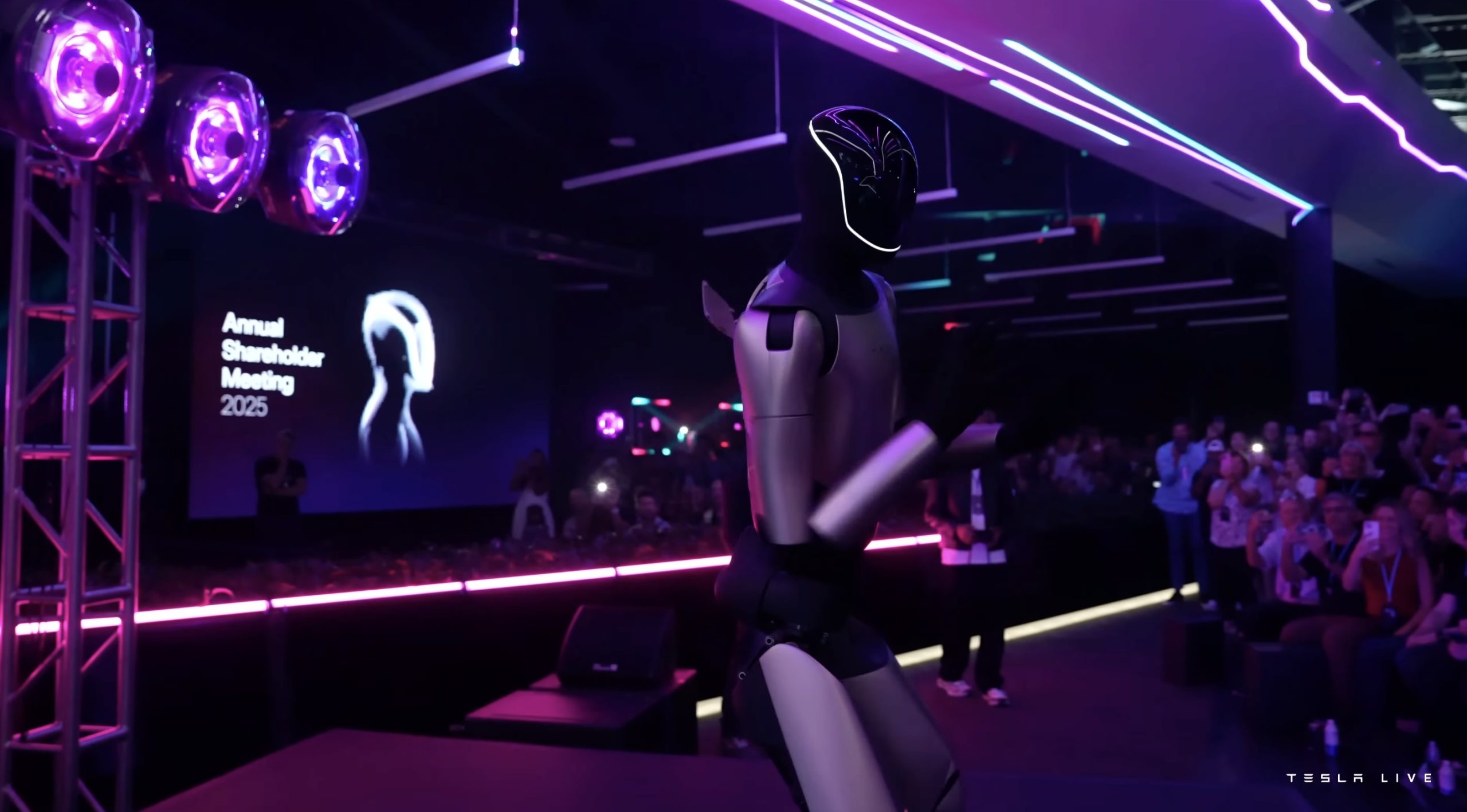
Tesla will build Optimus 4 in Giga Texas, and its production line will be massive. This was, at least, as per recent comments by CEO Elon Musk on social media platform X.
Optimus 4 production
In response to a post on X which expressed surprise that Optimus will be produced in California, Musk stated that “Optimus 4 will be built in Texas at much higher volume.” This suggests that while the first Optimus line will be set up in the Fremont Factory, and while the line itself will be capable of producing 1 million humanoid robots per year, the real ramp of Optimus’ production will happen in Giga Texas.
This was not the first time that Elon Musk shared his plans for Optimus’ production at Gigafactory Texas. During the 2025 Annual Shareholder Meeting, he stated that Giga Texas’ Optimus line will produce 10 million units of the humanoid robot per year. He did not, however, state at the time that Giga Texas would produce Optimus V4.
“So we’re going to launch on the fastest production ramp of any product of any large complex manufactured product ever, starting with building a one-million-unit production line in Fremont. And that’s Line one. And then a ten million unit per year production line here,” Musk stated.
How big Optimus could become
During Tesla’s Q4 and FY 2025 earnings call, Musk offered additional context on the potential of Optimus. While he stated that the ramp of Optimus’ production will be deliberate at first, the humanoid robot itself will have the potential to change the world.
“Optimus really will be a general-purpose robot that can learn by observing human behavior. You can demonstrate a task or verbally describe a task or show it a task. Even show it a video, it will be able to do that task. It’s going to be a very capable robot. I think long-term Optimus will have a very significant impact on the US GDP.
“It will actually move the needle on US GDP significantly. In conclusion, there are still many who doubt our ambitions for creating amazing abundance. We are confident it can be done, and we are making the right moves technologically to ensure that it does. Tesla, Inc. has never been a company to shy away from solving the hardest problems,” Musk stated.
